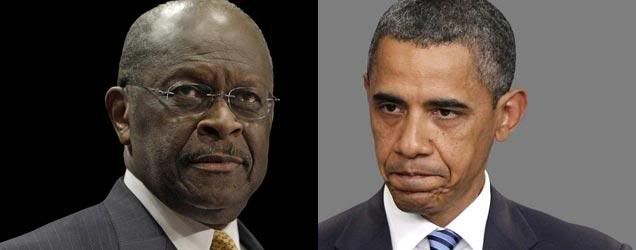Cain and Obama: How Their Fathers’ Dreams Affect America
Presidential debates often focus on what the candidates say about their policies, but rarely allow us to become familiar with the character of the man or woman running for that office. Recently, I had two experiences which allowed me to understand more fully the character of our President, Barak Obama, and Mr. Herman Cain, who is running for President in the Republican primary.
The Character of President Obama’s Father
While listening to the radio driving home one night, I heard an interview with Sally Jacobs about her new book, The Other Barack: The Bold and Reckless Life of President Obama’s Father. Through listening to the interview, and reading about her book online (see, for example, http://yourblackworld.com/2011/07/07/new-book-says-president-obamas-father-considered-putting-him-up-for-adoption/ ), I learned that Obama’s father was a polygamist and an alcoholic. I also learned that he had been an economist. In 1965, he wrote a review of a publication on African Socialism in which he stated
“True
there are cases in which nationalization is bad, but there are,
likewise, quite a few benefits to be derived from it.” (Obama, Barak H.
(July 1965). “Problems facing our socialism: another critique of Sessional Paper No. 10″. East Africa Journal (Nairobi) 2 (4): 26–33. )
I’ve provided a link to
the entire paper for those interested in the quote’s context, but it is
clear that President Obama’s father saw nothing wrong with socialism.
In fact, his review of socialism looked at how African socialism
generally could work in Kenya specifically.
The Character of Herman Cain’s Father
Mr. Cain came to
Indianapolis in mid-August, and I had the pleasure of hearing him speak
to a crowd of about 200 people. I was particularly impressed with the
story he told of his father. As a boy, Mr. Cain said to his father “why
do we live in half a house?” to which his father responded “It’s not
half a house. It’s a duplex!” Cain’s father didn’t attend Harvard, as
Obama’s father did. Instead, he worked three jobs – as a janitor, a
barber and a chauffeur. Cain said one of his father’s proudest moments
was when he took his family to a new house he had saved money to buy,
surprising his wife as well as his children, when he presenter her with
the keys to the house.
The Character of the American People
I believe the question
Americans should be asking themselves is what kind of people we want to
be. Do we want to be a people who believe that the way to get ahead in
life is to take from the labor of others and aggrandize ourselves with
that for which we have not worked? Or do we want to be a people that
seek to get ahead by the sweat of our brow and earn what we have?
Do you remember when
Senator Obama, as a candidate for President, met Samuel Wurzelbacher,
better known as “Joe the Plumber”? When asked about his tax plan, Obama responded by saying:
“If
you’ve got a plumbing business, you’re gonna be better off [...] if
you’ve got a whole bunch of customers who can afford to hire you, and
right now everybody’s so pinched that business is bad for everybody and I
think when you spread the wealth around, it’s good for everybody.”
Who we have as President, and the quality of their character, matters to the American people.
Back in 2001, Lawrence M. Stratton and Paul Craig Roberts wrote a paper titled The Fed’s “Depression” and the Birth of the New Deal
in which they looked at the history of the Great Depression. While I
encourage anyone to read the entire article, the following statement at
the end of their essay stands out:
“The
great depression’s most serious and long-lasting consequence was not
the collapse of prices and employment, but the displacement of the
traditional reliance on individual responsibility with government
guarantees of security. Beginning with Social Security, these guarantees
have grown into the all-encompassing welfare state. "This has changed the character of the American people, and it has changed the character of their government.” (emphasis added)
David Lantz is the author of Think Like Jesus, Lead Like Moses: Leadership Lessons from the Wilderness Crucible. To learn more about him, go to his website at www.wisejargon.com


No comments:
Post a Comment